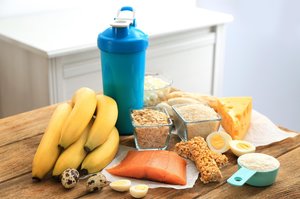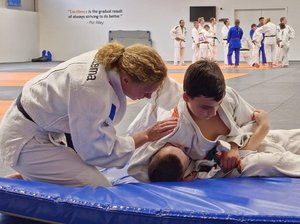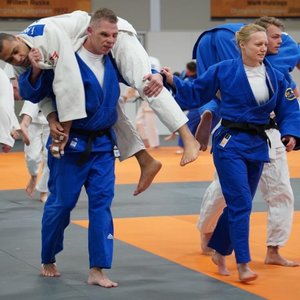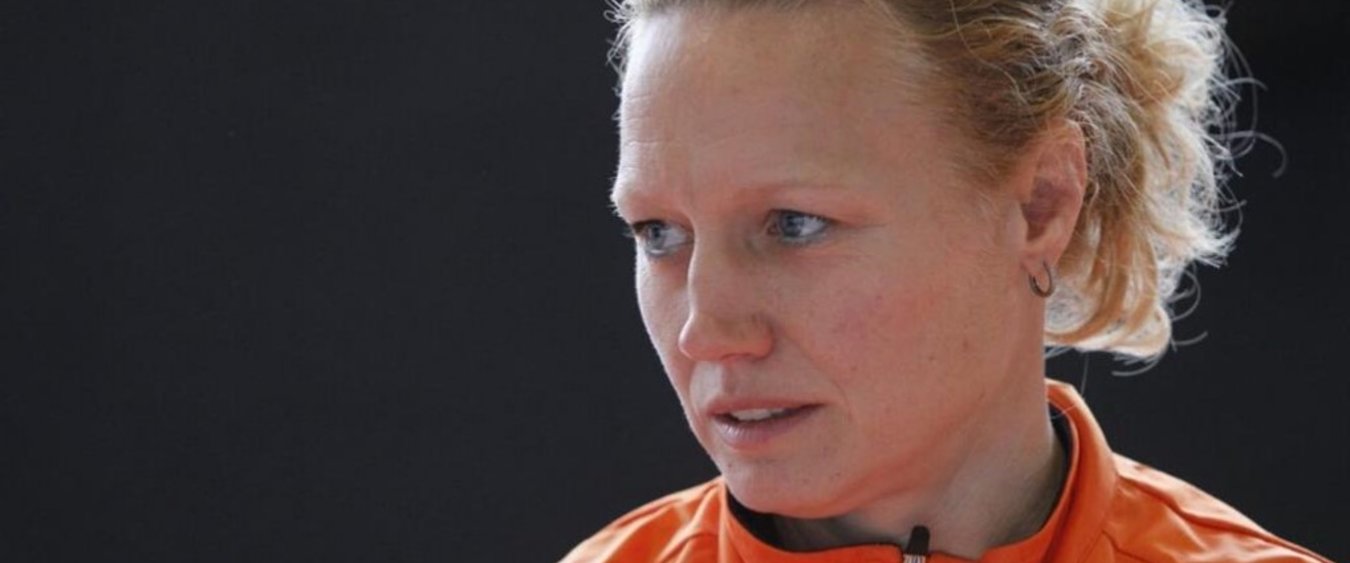In this interview, Danielle shares her story of Olympic training and nutrition, her time with Daniel, and the potential recovery impact of Peptan collagen peptides.
What sparked your interest in judo?
‘While many people are thinkers, I've always been more of a doer. My brother was into judo, and naturally, I wanted to follow suit. Judo is a sport that engages your entire body; it requires strength, speed, and intelligence—a perfect combination, in my eyes. I believe it's essential for people to engage in various sports; it's not just good for your body and mobility, but also for your overall development. Even now, I still feel the passion for judo. It's not just about brute force; it's about strategy, using your opponent's movements to your advantage, gaining control. Unfortunately, due to injuries, I can't compete as much as I used to, but my love for the game remains strong.’
Where did your interest in sports nutrition come from?

‘In a competitive combat sport like judo, weight is pivotal. You need to stick to your weight class, while ensuring you’re able to perform at the optimum level. Back when I was training for the 2000 Summer Olympics in Sydney, nutrition was a struggle for me. It felt easier to train and compete against my opponents than to fight with food and the scales. I saw how just important food is, and I was interested in understanding nutrition in more depth. I wanted to help others relate to food better, as I still do. That’s one reason why I eventually studied Nutrition & Dietetics.’
Tell us more about your work in sports nutrition?

‘In my work as a sports dietitian, personal trainer, judoka, and lifestyle coach, I work with a range of people: from visually impaired (VI) judokas, people who want to get back to peak physical fitness, and even younger children starting out their athletic training – a group I’m passionate about. For them, nutrition can be so hard. Their engagement with sports makes their lives so different from the kids they know: with all the training, the need to manage sleep, diets, and more, they already feel like an exception. Think of how many kids may go and grab a sweet snack or a packet of crisps if they have an hour off – young athletes can’t do that. The social pressure adds mental pressure to an already-tough workload. I want to support kids like this with the experience and knowledge I gained from being an Olympian and nutritionist. I can support them with practical advice about preparing meals, what to eat at school or after training sessions, and how to maintain a healthy diet in line with their ambitions, while fostering a healthy relationship with food.’
Do you take Peptan collagen peptides?
‘Yes! I’ve been taking them for around a year. I’ve noticed improvements too; it seems that my recovery speed has increased. Additionally, there have been noticeable beauty benefits, particularly for my skin. Now, I frequently recommend it to others, and they usually report positive experiences with it as well.
‘I first heard about Peptan collagen peptides when Daniel Knegt, a Dutch Paralympic hopeful in VI judo, and I attended a conference where Peptan was showcased. Given our history of injuries, we decided to give it a try. After Daniel’s life-changing car crash, recovery was expected to be slow; however, he was back on his feet soon after. Both his surgeon and I were so surprised! We believe that Peptan supplementation likely played a role here.’
Can you share more about your work with Daniel Knegt?

‘My work with him mainly involves coaching, training, being his guide, and going to tournaments together. Currently, we're looking towards the Paralympics in Paris 2024. We have two tournaments coming up first, and it's crucial for him to perform well, as getting to Paris requires being in the top seven. At the moment, he's in 7th place, but we're not there yet! At this point, performing under pressure and managing mental health are so important. While we strive to be smarter and keep our heads cool, it's not always easy. The last time the Netherlands had participants in the Paralympics was in 2008, so it's a big goal for us to qualify. We're hopeful and determined to take matters into our own hands – but it’s still nerve-wracking.
‘Witnessing Daniel's journey has been truly inspiring. He's like a hero to many, particularly for younger blind individuals who look up to him and realize what they could achieve. My work in VI judo also serves as a reminder of just how important the social aspect of sports is. VI individuals face many extra challenges in their lives, and it’s easy to feel alone in those; however, if you get involved in a sport, you set yourself goals to reach, make new friends who understand you, and build strong connections in your group. It's not just about physical activity, but about community.’
What was your career highlight?
‘One of the biggest highlights of my career was winning numerous medals at the World Cups and eventually qualifying for the Olympics. However, just a month before the Olympics, I sustained an injury. I chose not to undergo surgery and still competed at the Olympics. Because of my injury, I couldn’t find my flow or rhythm, and I didn’t manage to win a medal, but being there as a participant was fulfilling enough. The journey to reach the Olympics is filled with obstacles, but it's a road worth traveling – when you get there, you feel like a hero! It was a true honor to represent my country – having done so for the Netherlands still fills me with pride.’
